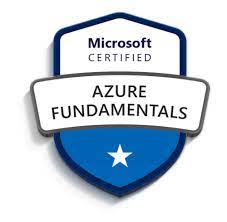Cloud Database Administrator for MS Azure
Online Certification Course from Queensborough Community College
Program Description
This program provides an in-depth understanding of networking, storage, compute, application support and development in cloud environments with a specific focus on Microsoft Azure. In this course, Learners will discover the ins and outs of cloud concepts, Azure services, Azure workloads, security and privacy in Azure, as well as Azure pricing and support. Core solutions and management tools on Azure, general security and network security features, identity, governance, privacy, and compliance features, and Azure cost management and Service Level Agreements are further explored.
Next, the Learners will explore common tasks and concepts that an administrator needs to understand to deploy and manage infrastructure in Microsoft Azure. The Administrator functions for cloud database structures include managing Azure AD objects (users, groups, and devices), Azure AD join and self-service password reset. It also covers role-based access control, tagging, subscription level policies, and resource organization using resource groups, subscription, and management groups.
Finally, Learners will gain an understanding of the skills and knowledge required for implementing and monitoring an Azure infrastructure, managing security solutions, implementing solutions for apps, implementing and managing data platforms. Learners will understand Azure capability in networking, virtualization, identity, security, business continuity, disaster recovery, data platform, budgeting, and governance.
This program covers the following key areas and topics:
- Basic Cloud Concepts
- Core Azure Services
- Core Solutions and Management Tools on Azure
- General Security and Network Security Issues
- Identity, Governance, Privacy, and Compliance Features
- Azure Pricing, SLAs, and Lifecycles
- Manage Azure Identities and Governance
- Implement and Manage Storage
- Deploy and Manage Azure Compute Resources
- Configure and Manage Virtual Networking
- Monitor and Back Up Azure Resources
- Networking and Computing
- Hybrid, Compliance, and Messaging
- Developing for the Cloud
- Migrate and Deploy
- Monitor and Recover
- Gaining the Azure Solutions Architect Expert Certification
As part of this program, Learners will complete the following hands-on labs and activities:
- Creating an Azure ExpressRoute
- Creating an Azure Load Balancer
- Creating and Configuring VNet Peering
- Creating an App Service Plan
- Creating a Web App in Azure
- Creating Azure Container Instances
- Creating a Virtual Machine in Azure
- Creating Internet of Things Hub and Adding a Device
- Creating Azure Internet of Things Central Application
- Creating an Azure Bot
- Creating a Function App
- Creating a Network Security Group and Adding a Rule to it
- Creating Azure Databricks
- Creating a Storage Account
- Implementing Azure Storage Replication
- Uploading and Downloading Blobs with the Azure Portal
- Creating and Managing Azure File Shares with the Azure Portal
- Configuring a High Availability Set
- Creating and Deploying Azure Resource Manager Templates by Using the Azure Portal
- Downloading the Template for a VM
- Creating a Virtual Machine
- Attaching a Managed Data Disk to a Windows VM by Using the Azure Portal
- Attaching Network Interfaces
- Creating and Configuring VNet Peering
- Creating a Virtual Network
- Creating a Network Security Group
- Creating a Firewall
- Creating a Load Balancer
- Creating an Azure VPN gateway
- Creating an Azure ExpressRoute
- Configuring the Recovery Services Vault
- Creating an Azure Key Vault
- Creating an Azure Virtual Machine
- Creating and Configuring VNet Peering
- Creating a Subnet
- Configuring a Service Endpoint for an Azure Web App
- Creating an Azure Virtual Network
- Creating a Network Security Group
- Creating an Azure Firewall
- Creating and Configuring an Application Gateway WAF
- Configuring Azure Domain Name System (DNS) for an Azure Virtual Machine (VM)
- Creating an Azure ExpressRoute
- Creating an Azure Virtual Private Network (VPN) Gateway
- Creating a Load Balancer
- Creating a Container Instance
- Creating an Azure VM Custom Image
- Encrypting a Managed Disk
- Creating and Configuring a Virtual Machine Scale Set
- Creating and Configuring an Availability Set
- Creating an App Service Plan
- Creating a Web App in Azure
- Creating an Azure Function
- Creating and Managing Azure File Shares
- Creating an Azure Redis Cache
- Creating an Azure Storage Table
- Uploading and Downloading Blobs with the Azure Portal
- Creating a Storage Account
- Creating an Azure Data Explorer Cluster
- Creating an Event Hub and Updating the Azure Key Vault Secret value
- Creating an Event Hub
- Creating Logic App
- Enabling Managed Identity and Allowing Access to the Azure Key Vault Secret
- Implementing Azure Storage Replication
- Creating and Deploying Azure Resource Manager Templates by Using the Azure Portal
- Deploying an Application from Azure DevOps
- Configuring the Recovery Service Vault
Certification Opportunities
After completing this program, learners will have the option to take the leading national/industry-recognized certification exam(s) essential to entry-level employment in this fast-growing field.
The Microsoft Azure AZ-900 and Administrator AZ 104 certification exams associated with this program are designed for candidates who are just starting their career in cloud-based solutions and services or are new to Azure. Going further, the AZ 303 and 304 exams demonstrate advanced experience and knowledge of IT operations, including networking, virtualization, identity, security, business continuity, disaster recovery, data platform, budgeting, and governance.
 |
Microsoft Certified: Azure Fundamentals |
 |
Microsoft Azure Administrator |
Optional Volunteer Externship Opportunity
Learners who complete this program are eligible to participate in an optional volunteer externship opportunity with a local company/agency/organization whose work aligns with this area of study in order to gain valuable hands-on experience. As learners progress through their eLearning program, an Externship Coordinator will reach out to coordinate placement.
Note: Additional documentation including health records, immunizations, drug-screening, criminal background checks, etc. may be required by the externship facility.

Requirements
- High School Diploma or GED
Program Details
- Mobile-Ready
- All Textbooks
- 24/7 Learner Support
- Certificate of Completion
- Externship Opportunity